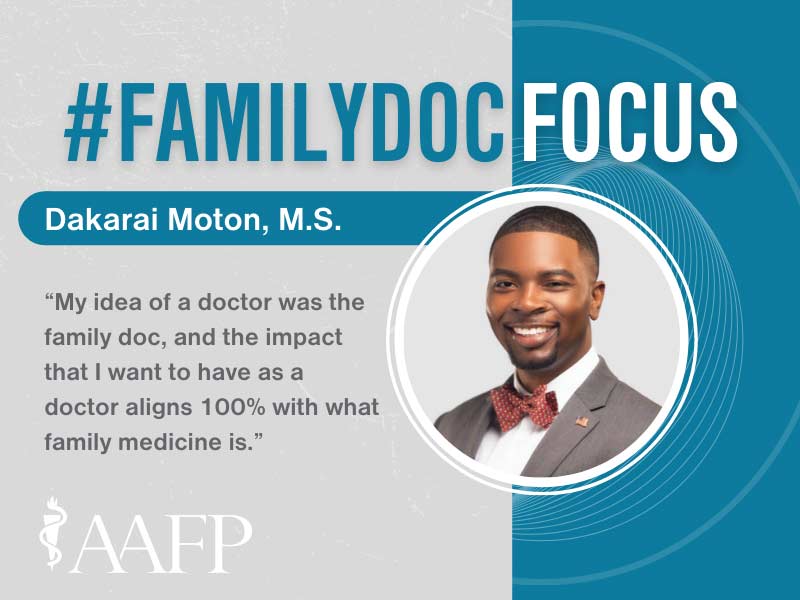Student Leader Is Eager for Match Results
March 14, 2022, 3:03 p.m. David Mitchell — Dakarai Moton, M.S., was pondering a career as a broadcaster or entertainer when a high school mentor suggested he participate in HOSA – Future Health Professionals. That pipeline program put Moton on his current path, where he is awaiting National Resident Matching Program results that will determine the next step in his training.

“I had a great experience that opened up my eyes to the scope of what is possible in health careers, particularly medicine,” said Moton, a fourth-year student at New York Institute of Technology’s College of Osteopathic Medicine. “After having that experience for about a year and a half, I said, ‘You know what? I want to go to medical school. I want to be a doctor,’ and my journey began.”
HOSA gave Moton exposure to a wide range of health care professionals and opportunities to participate in competitive, educational events.
“It was a push for high school students to see what medicine is all about and to become more familiar with the landscape of medicine and health care,” he said. “I was like, ‘Oh, I want to do that. I can see myself doing that.’ Once I got to college, becoming a doctor was what I was working on.”
As an undergraduate at Dillard University in New Orleans, Moton found a mentor in former AAFP President Warren Jones, M.D., a Dillard alumnus who was then the school’s chair in health disparities research. Moton said his life and career have been “testaments to being supported by family, friends and mentors like Dr. Warren Jones. I simply would not have made it this far without their continuous support.”
Jones and Moton have multiple common interests in their career paths: military service, leadership and family medicine. Jones retired from the U.S. Navy as a captain when his term as AAFP president began in 2001. Moton is a first lieutenant in the U.S. Army Reserves participating in the Medical and Dental Student Stipend Program.
Moton already is forging a path to being a leader in medicine. He served as class president in his first and second years at the NYIT’s College of Osteopathic Medicine on the Jonesboro campus of Arkansas State University and served as president of the student government association during his third year. This year he is the AAFP’s student delegate to the AMA Medical Student Section.
“Medical education is tough,” he said. “Finding ways to make that an experience that’s memorable for the right reasons is important. I think my peers recognized I was passionate about making the spaces that we are in the best for our mental health, wellness, education and welfare. I wanted to advocate for myself and my peers to really have an awesome experience. I’m thankful for the opportunities, even though it took a lot, because it poured back even more into me. I feel empowered from those experiences to be a good advocate for my patients, my peers and myself.”
Moton already has been notified that he matched into family medicine. On March 18, Match Day, he’ll learn where he will spend the next three years.
He said he knew family medicine was the specialty for him early in his medical education.
“I spent a lot of time in reflection about what my purpose is,” he said. “My idea of a doctor was the family doc, and the impact that I want to have as a doctor aligns 100% with what family medicine is. It’s the idea of being able to treat anybody who comes through the door. We have a scope that no other specialty has. We see people from newborns to the not-so new to the elderly.”
Moton is a first-generation college student from a family that he said was “hardworking poor,” while he was growing up in St. John the Baptist Parish near New Orleans and in Baytown, Texas, outside Houston.
“I have a special interest in health disparities, wanting to find and fill those gaps to help people,” he said. “That’s one of my big, overarching goals. I was motivated because we’ve got some work to do living in the South. You see that people’s ideas about their own health are not well fitted for what they can actually do. I want to change how people see health. I want to empower patients to be more active, engaged and informed about their health. We know that there’s some things that we don’t do well in southern culture. We don’t diet. Exercise is not popular, and people unfortunately die from preventable diseases. I want to help people do the best thing for them.”